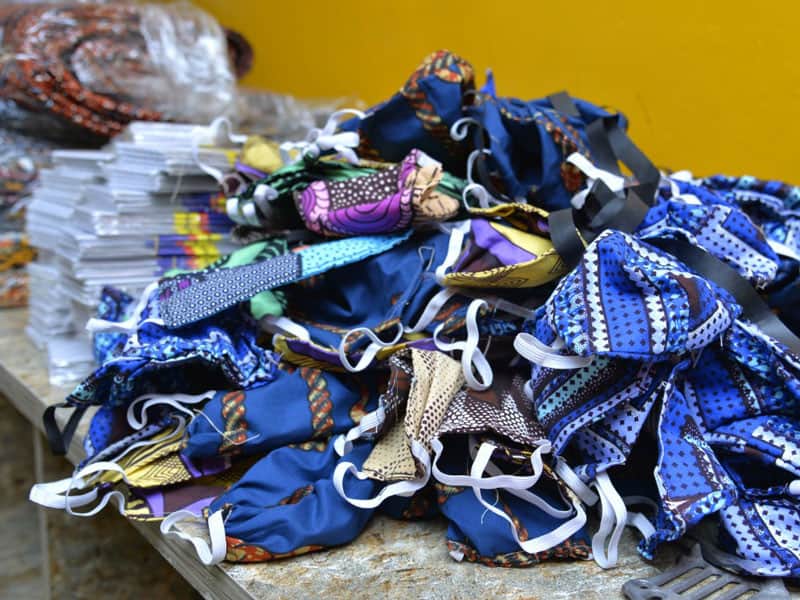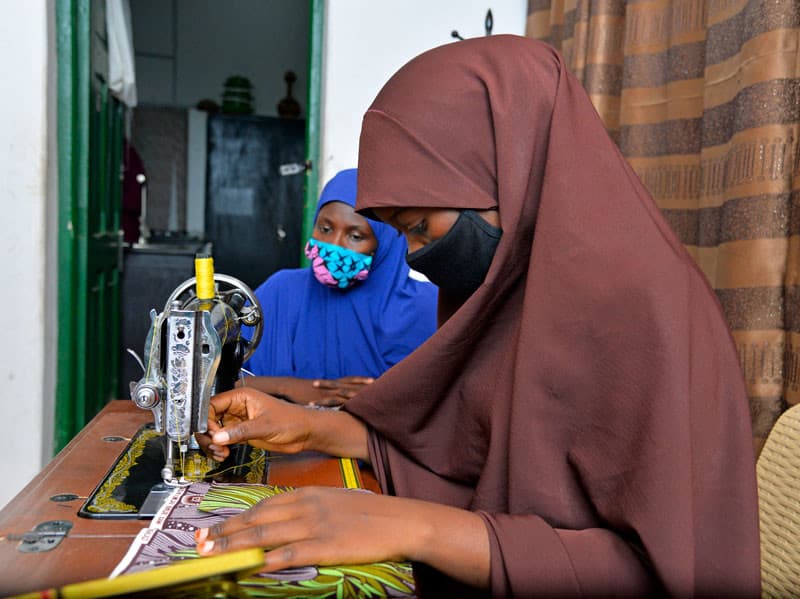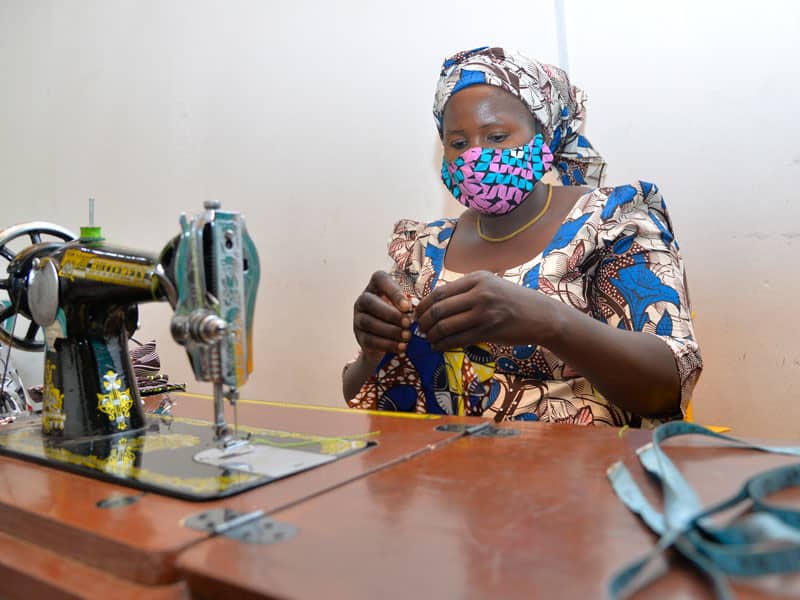50,000 handmade face masks to support COVID-19 prevention in NE Nigeria
By Evelyn RupertMay 21, 2020

For more information and updates about Creative and our programs’ response to COVID-19, click here.
A group of women in Northeast Nigeria are pooling their tailoring skills and setting their sewing machines to work to produce tens of thousands of face masks that can help to slow the spread of COVID-19.
Their effort will help protect residents of Borno state, particularly those whose work prevents them from staying at home or maintaining strict physical distance from others. And with the economy under additional strain from the pandemic, the work is also a source of income for the 40 women — each of them widowed or otherwise affected by the conflict with Boko Haram in the region.
The mask production was organized by the Nigeria Lake Chad Basin (NLCB) program in partnership with the Borno State Ministry of Women Affairs. The program, which is known in Nigeria as the North East Regional Initiative (NERI), is funded by the U.S. Agency for International Development’s Office of Transition Initiatives.
“I wish to commend NERI for this remarkable work because a lot of people have benefited from the face mask production,” says Hajjiya Zuwaira Gambo, Borno state’s Commissioner of Women Affairs and Social Development. “As time goes on, quality face masks like the ones NERI is supporting will be scarce, so this is a great initiative.”

As of the first week of June, more than 51,000 non-medical cloth masks had been delivered and distributed by state officials to high-risk residents, including people with disabilities, transit workers and market vendors.
“This is a great opportunity for women of Borno state as a whole, because these face masks will not only benefit commercial transportation drivers, market vendors and the public, but it is also an income generating activity for us,” says Bintu, a tailor who helped train the other members of the group on making masks. “I praise NERI for all that they have been doing for women in the state.”
Bintu and the other tailors had all previously received livelihoods skills training through NLCB under various activities aimed at supporting vulnerable women to generate income. Past trainings have focused on how to make bags, shoes and other items, and the same process is now being applied to producing masks. The mask making training occurred in small group settings, and then the women were provided with materials and instructions to continue the work from home.

The masks, sized for children and adults, are made from 100 percent cotton and use multiple layers of a traditional patterned fabric called Ankara. The masks were reviewed and approved by Borno state health authorities, confirming their high quality.
Coordinators are regularly stopping by the tailors’ homes to collect finished masks and then donate them to the state officials, who then distribute them to markets, mosques, motorparks and other high-traffic areas.
In the future, NLCB is working on establishing a collective for the tailors, so that they can continue collaborating to produce and sell masks in bulk.
“I hope that this mask-making initiative by women tailors in Maiduguri will spark the contribution of other actors working in the Northeast – international NGOs, foundations, private sector actors,” says Chief of Party Olivier Girard. “We hope that they will replicate what we did, or better, and order larger quantities of masks from this group of well-trained tailors.”
With reporting by Rukayya Jibrin.

